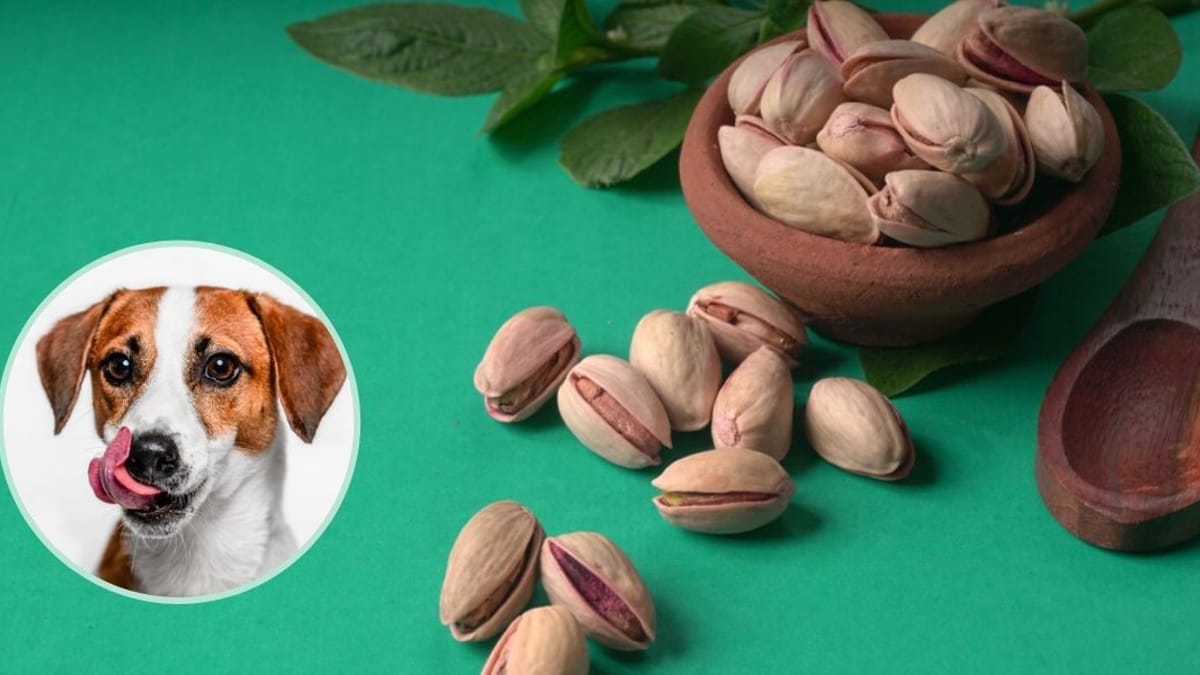Pistachios are among the best known and most consumed varieties of nuts since ancient times. Versatile and delicious in the kitchen, they are a healthy and tasty pleasure for humans.
But there is a question that intrigues several pet owners: can i dog pistachios?
Can Dogs Eat Pistachios?
It is not recommended to give pistachios to your dog. Although they are not toxic to dogs per se, these oilseeds are not a recommended food for our four-legged friends. They are high in fat and may contain a mold that puts your pet at risk for liver damage.
Additionally, they can also cause your dog to have an upset stomach or intestinal obstruction which leads to more serious digestive problems.
Not to mention the pistachio shells which pose a choking hazard.
Pros and cons of giving your dog pistachios
Are pistachios good for you?
Pistachio is highly rich from a nutritional point of view (antioxidants, unsaturated fatty acids excellent for the cardiovascular system, minerals, vitamins, etc.).
Despite this, the benefits do not outweigh the disadvantages and, if consumed in quantity and in the long term, pistachios remain dangerous for Fido.
The disadvantages of pistachios for dogs
Pistachios, like many other nuts, are not welcome in pets’ diets. If their virtues are multiple for humans, they are all relative in the animal kingdom.
Pistachios can cause choking (from the shells), digestive problems, neurological disorders and other serious health problems, which you will discover as you read on.
Are pistachios bad for dogs?
Yes, pistachio is bad for dogs Although they are non-toxic, these fruits can be a dangerous food for your pet.
This is why we advise you to isolate pistachios from places accessible to your dog as with other types of nuts and to feed them only with the certainty that they do not have molds and shells.
Why is it bad for dogs to eat pistachios?
Here are the top three reasons why it’s best not to feed pistachios to your dog.
Dog eating pistachio shell
The shells can get caught in the pet’s throat or digestive tract, causing the suffocation and a variety of problems that would require emergency intervention by your vet.
Risk of mold
Fresh pistachios that have been purchased for some time, or pistachios that have been unpacked for several weeks, can develop a mold that contains tremorgenic mycotoxinswhich in turn can cause neurological disorders e digestives.
High amount of fat
Pistachios also contain 45 grams of fat per 100 grams of product, which is four times the recommended 14 grams of fat per day for a 30-pound dog!
An excess of fat, over time, can cause everything: from obesity to pancreatitis, another reason why it is better not to feed pistachios to your dog.
What to do if your dog ate pistachios?
If your dog has eaten pistachios, it’s important to take stock of the situation. Were they old? Had the package already been opened for some time? How many has your dog eaten and how big is the animal?
For example:
- If your dog is a small breed and has eaten a whole pistachio, you will need to watch out for a possible intestinal obstruction.
- On the other hand, if your dog is medium-sized and has eaten a whole bag of shelled pistachios that you left under the couch, you’ll want to watch him for signs of mycotoxin poisoning.
- On the other hand, if you have a large dog that has eaten some oilseeds, observing him for a while may be your first course of action.
Generally speaking, if your dog has eaten more than one pistachio, it’s best to closely monitor your pet for hours after consumption.
Be that as it may, it is possible to give the dog a few occasional pistachio as a reward snack (unshelled and unexpired of course!).
Dog pistachios: symptoms of intoxication
If your faithful friend has eaten a significant amount of pistachios, watch out for these symptoms:
If you notice any abnormal behavior, don’t hesitate to contact your veterinarian to make sure there is no risk to your pet’s health.

